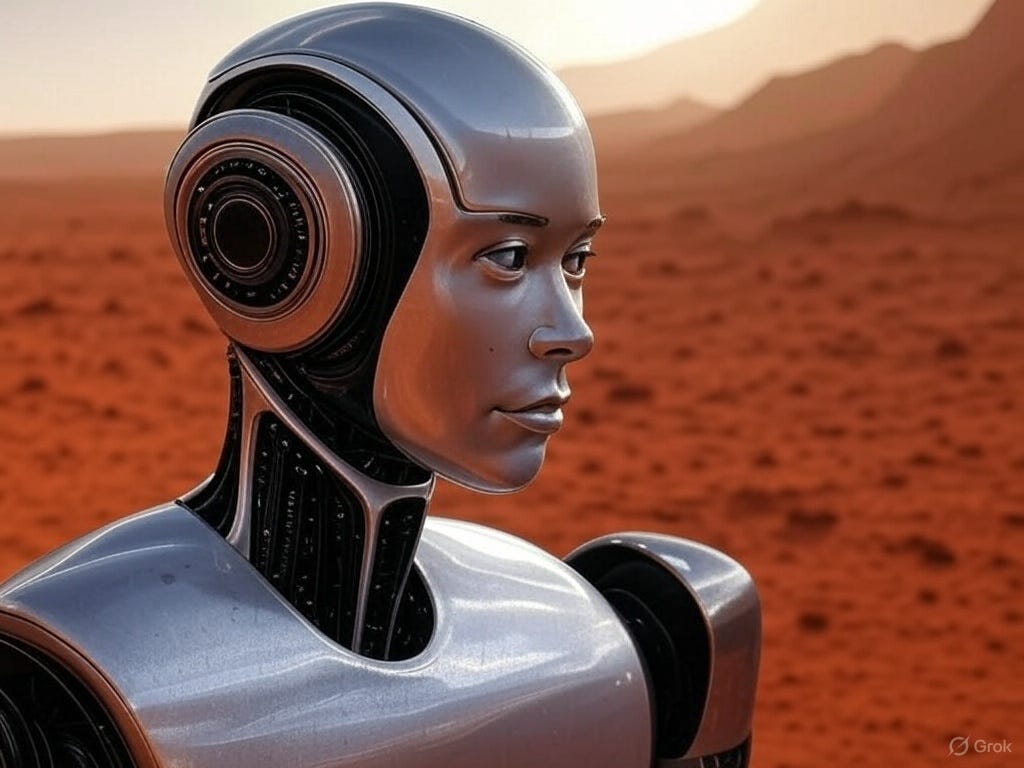Technopaganism
The modern religion of Elon Musk and the technological class
Technopaganism describes one of the more popular modern religions. It has several central doctrines, but it is not a formalized religion.
Elon Musk is today’s prophet of technopaganism. His recent tweet was, “As I mentioned several years ago, it increasingly appears that humanity is a biological bootloader for digital superintelligence.” The implications of this position are that humanity is fertilizer for a transcendent future human and technology will be some sort of liberator. Neuralink is Musk’s literal fusion of technology and the human body.
Musk is not alone. While he is coming from the right, there are plenty of leftwing advocates of technopaganism. Some call it “techno utopisanism,” which aligns it with other utopian efforts. The idea of a bureaucratic, intelligent governing elite using “nudges” and big data to transform our lives for the better flows from a sort of soft, left-wing version of technopaganism. Other technopagans fuse old-world paganism with modern technology. The 1980s novel Neuromancer by William Gibson is a sort of cyberpunk rendition of technopaganism. It is not well defined, but yet technopaganism is a growing influence in our world.
Birthed out of modernity, technopagans believe in transcendent technological advance. Just as the modernists in the era before the World Wars of the last century, they have an optimistic view of the future and man’s innate nature. In this way they diverge somewhat from the despair inherent in post-modernism. At the same time, it arises from a view of man that is clearly not found in the Christian tradition.
There are a number of beliefs espoused by technopagans.
Technology working with humanity to create a more perfect human. This is often expressed in a “super” (like super intelligent or super humanity). Even though much of the recent digital advances have created high levels of unhappiness, particularly in our teens, there continues to be a questing for the perfected human via AI and digital progress.
They have an optimistic view that technology is an overall good or moral positive for humanity. Even though there is plenty of evidence to the contrary (see the horrors of World War 2 and the way that we use drones today to hunt down enemies) technopagans are very hopeful.
Many technopagans adhere to the view that there is sentient, alien life out there, despite no evidence supporting this. They believe, by faith, that we simply have not found sentient life yet but, given enough time and effort, we will. They believe that when we find alien life forms it will create huge breakthroughs for mankind and that we will prosper when contact is finally made.
A common belief is that space exploration is a means to extending human flourishing. This is going to be a challenge in a way seldom discussed. Psychological separation from the environment which was created for us will be a bigger challenge than rocket telemetry and oxygen supply.
I would suggest that we need a new Turing test for what qualifies as human. The original test, developed by Alan Turing in 1949, was to mark the advance of a machine’s ability to reason. If a person could not distinguish between the text written by a machine and a text written by a human, then that machine was to have passed the test. This was a proof that the machine could imitate human reasoning using natural language.
Imitation may be a sincere form of flattery, but Turing’s test ignores the reality of Imago Dei. Our created humanity includes something much deeper than intelligence. Even the suggestion that a machine can “imitate” or “reproduce” is a sign that the test is flawed. People do not merely imitate others. They express their own self-worth by very fact of their wonderful, created existence.
A better Turing test for a machine that seeks to be a human might be when it can display faith, love, and hope. 1 Corinthians 10:11-13 describes what we are capable of:
When I was a child, I talked like a child, I thought like a child, I reasoned like a child. When I became a man, I put the ways of childhood behind me. For now we see only a reflection as in a mirror; then we shall see face to face. Now I know in part; then I shall know fully, even as I am fully known. And now these three remain: faith, hope and love. But the greatest of these is love.
Musk (and the Chinese AI movement) is building a superintelligence not because he should. He is doing it because he can. This has always been an issue with technological advances. Will God reach down once again and confuse our languages?
He just might.



Where can I read the rest of the story ?